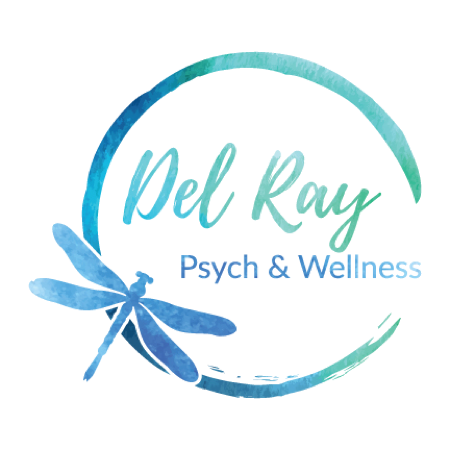Discover our specialized small group Ketamine-Assisted Psychotherapy (KAP) retreats, designed to foster a supportive and transformative environment for healing. Our carefully curated groups offer a unique opportunity for individuals to explore shared experiences, insights, and growth under the guidance of skilled therapists.
Join us in a safe and nurturing space as we embark on a journey towards mental wellness together.
Benefits of Group Retreats:
-
Beyond ketamine therapy, retreats incorporate additional modalities such as mindfulness practices, movement therapy, and group discussions, promoting holistic well-being.
-
Through shared experiences and reflections, participants amplify their personal growth potential, gaining insights and perspectives from diverse backgrounds.
-
Guided by experienced facilitators, participants learn to integrate their ketamine experiences into their daily lives, fostering lasting transformation.
-
Find solace and understanding among peers who share similar journeys, fostering a sense of belonging and support.
Details:
Each of our specialized one-day group KAP retreats are run by 2-3 of Del Ray Psych’s psychedelic, somatic, and trauma-informed clinicians who will foster a safe and supportive environment for individual and collective growth.
The experience includes:
a 3-4 hour on-site medicine session featuring different topics and/or elements (breath work, movement, art therapy, IFS meditations)
Follow-up integration session (virtual)
Investment:
$400 per initial Oral Ketamine retreat (includes psych intake interview, 3-4 hour retreat, follow-up integration session)
$700 per initial Intramuscular Ketamine retreat (includes psych intake interview, 3-4 hour retreat, follow-up integration session) *Medicine Included in this Retreat Option
Each new participant will need to complete prior to the retreat:
One time Medical Evaluation with KAP Partner ($200) + Medication Costs (varies depending on prescribed dosage and frequency)
Screening Psych Intake Interview with Del Ray Psych (60 Minutes) - (Included in the $400 Retreat Price)
DISCOUNTS AVAILABLE for repeat group attendees and current DRP KAP clients. If you are a current DRP KAP client, please email your clinician. For repeat KAP group attendees, email office@delraypsych.com to receive your special code.
Questions?
Do you have questions about the Ketamine-Assisted Psychotherapy (KAP) Retreats and would like to see if it is right for you?
Contact us using the form below and we will get back to you within 48 hours.
Healing for Healers Retreat Series
Embark on a transformative journey and step into a realm of experiential learning with our KAP Groups tailored for wellness professionals.
Del Ray Psych & Wellness is pleased to start hosting monthly healing retreats crafted specially for clinicians and wellness professionals who are devoted to their continual journey of personal and professional growth. These retreats, led by seasoned facilitators, are an excellent opportunity for individuals who are interested in learning about psychedelic medicine. Allowing them to immerse themselves in an interactive journey exploring the transformative potential of Ketamine-Assisted Psychotherapy (KAP), and expanding their healing modalities, community connection, and personal growth.
Available 1 Day Retreat Dates:
2026 Retreats Coming Soon!
KAP Small Group Retreats
Take a break from the pressures of everyday life and engage fully in your healing journey during our ketamine assisted psychotherapy small group experiences.
Our group retreats offer an excellent (and more affordable) opportunity for individuals who are interested in experiencing psychedelic medicine for their own personal growth. Whether you are looking to reduce anxiety, improve your mood, and/or gain insight, our Ketamine-Assisted Psychotherapy (KAP) retreats will provide you with a unique opportunity to explore shared insights, deepen connections, and accelerate personal transformation in a supportive, nurturing small group setting.
Join us for a collaborative and empowering path towards mental wellness.
Upcoming Retreat Dates:
Saturday, March 21, 2026 - 10:00 AM 3:00 PM; The Wellness Junction, Alexandria, VA
Client Testimonial
“My first group session with KAP was deeply impactful, probably the most profound experience of my life. This therapeutic approach seemed to fast-track the healing process, reaching the core of my issues more swiftly than traditional talk therapy. It brought to the surface long-held issues that I was able to confront and, I believe, release during the session.
A significant part of the KAP journey involved setting intentions with a guide during a one-on-one. I was amazed at how skilled my guide was in helping me navigate through the varying emotional landscapes. During moments of intense joy or pain, my guide was there, helping me process these feelings. The result was an overwhelming sense of lightness, joy, and love.
While it's challenging to encapsulate the entirety of this transformative experience in a review, I am certain that I would like to explore this path further. Del Ray Psych & Wellness has created an exceptional nurturing space for such deep introspection and healing.
I am truly grateful for having discovered Del Ray Psych & Wellness, and I am looking forward to a brighter future. If you're seeking a holistic approach to mental health, I highly recommend taking this journey with them. It is a decision that could potentially change your life for the better.”
-KAP Retreat Attendee, Alexandria, VA
Ketamine Assisted Psychotherapy FAQs & Resources
-
Ketamine is a FDA approved anesthetic agent originally developed in 1962. It has been used primarily as an induction agent for general anesthesia in surgery for children, adults, and animals. Ketamine has a remarkable safety track record, hence its use in the pediatric population. Recently, it has been discovered that ketamine can be highly effective in treating depression, PTSD, Fibromyalgia, and other conditions.
-
Ketamine is only available by prescription from a medical provider, a physician or nurse practitioner. Reach out to get a list of preferred providers.
-
The short answer is, yes. Our practice procedures require you to be cleared by a medical professional.
-
Ketamine is not recommended for clients who have cardiovascular conditions such as uncontrolled hypertension. Clients with active mania or a history of psychotic illnesses (e.g., schizophrenia) should not take ketamine, as there could be severe risks. Ketamine is also not indicated for clients who are actively abusing substances or have abused ketamine in the past.
-
Routes of administration of ketamine include intravenous, intramuscular, intranasal, and sublingual/bucal. At Del Ray Psych & Wellness, we currently use sublingual/bucal which is compounded ketamine lozenges (self-administered sublingually/bucally and held under tongue for several minutes).
-
The experience of a ketamine journey can vary from person to person, and it depends on factors such as the dosage, setting, and individual characteristics. However, there are some common elements that are often reported:
Dissociation: Ketamine is known as a dissociative anesthetic, which means it can induce a sense of detachment from one's body or surroundings. During a ketamine journey, you may experience a shift in your perception of reality, feeling disconnected from your body or a sense of floating or out-of-body experiences.
Altered Sensations: Ketamine can distort your sensory perception, leading to changes in how you perceive sounds, colors, and textures. Some people report enhanced or distorted sensations, while others may experience a blurring or merging of sensory inputs.
Emotional Effects: Ketamine can elicit a range of emotions, which can vary from euphoria and relaxation to introspection and introspective experiences. Some individuals may experience a deep sense of peace and contentment, while others may confront difficult emotions or memories.
Time and Space Distortion: Ketamine can alter your perception of time and space. It may feel as if time is slowing down or speeding up, and your sense of spatial awareness may be distorted.
Insights and Transcendent Experiences: Ketamine journeys can be accompanied by profound insights, self-reflection, and a sense of transcendence. Some individuals report gaining new perspectives on their lives, increased self-awareness, or a feeling of connectedness with something larger than themselves.
Visual Imagery: Ketamine can also induce vivid and immersive visual imagery, often described as dream-like or hallucinatory. These visual experiences can be abstract, colorful, or symbolic.
It's important to note that the effects of ketamine can vary depending on the dose and the context in which it is administered. In therapeutic settings, the experience is typically guided by a trained professional who can help create a safe and supportive environment to navigate the journey.
-
Ketamine journeys, particularly when used in a therapeutic context, have been associated with several short-term and long-term benefits. It's important to note that the research in this area is still ongoing, and the effects can vary between individuals. Here are some potential benefits:
Short-Term Benefits:
Rapid Mood Improvement: Ketamine has shown promise in rapidly reducing symptoms of depression, anxiety, and other mood disorders. Many individuals report experiencing an immediate improvement in their mood and a temporary relief from emotional distress.
Enhanced Emotional Insight: Ketamine can facilitate introspection and self-reflection, allowing individuals to gain new insights into their emotions, thoughts, and behaviors. This increased awareness can support personal growth and promote a deeper understanding of oneself.
Increased Relaxation and Stress Reduction: Ketamine's anesthetic properties can induce a state of deep relaxation and calmness. This can provide temporary relief from stress, tension, and physical discomfort.
Long-Term Benefits:
Sustained Mood Improvement: While the immediate mood-enhancing effects of ketamine may be temporary, there is evidence to suggest that ketamine-assisted therapy can lead to sustained improvements in mood and a reduction in depressive symptoms over time, even after the ketamine sessions have ended.
Improved Treatment-Resistant Conditions: Ketamine has shown promise in treating individuals with treatment-resistant depression, post-traumatic stress disorder (PTSD), and other challenging mental health conditions. It may offer an alternative treatment option for those who have not responded to traditional therapies.
Enhanced Resilience and Coping Skills: Through the insights gained during ketamine journeys and the therapeutic support provided, individuals may develop enhanced resilience, self-compassion, and new coping mechanisms. These skills can help individuals better navigate life's challenges and maintain their mental well-being in the long term.
It's important to note that ketamine journeys should always be conducted under the supervision of trained professionals in a controlled and therapeutic setting. Furthermore, individual responses and outcomes can vary, and ketamine should not be seen as a universal or standalone solution for mental health conditions.
-
A sitter is a person who is a trained mental health professional that provides support and assistance to someone undergoing a psychedelic experience. The sitter's primary role is to create a safe and supportive environment for the individual, ensuring their physical and emotional well-being throughout the session. Sitters also help process the individual’s experience, transcribe the experience in a journal, and guide through the experience. They may also have expertise in mindfulness, meditation, and other contemplative practices that can help the individual navigate the psychedelic experience. Having a sitter present during a psychedelic therapy session can help minimize the risk of adverse reactions and ensure that the individual receives the maximum benefit from the treatment.



